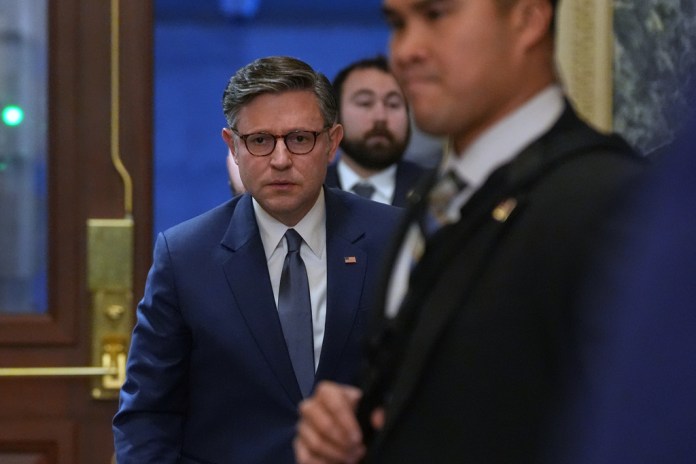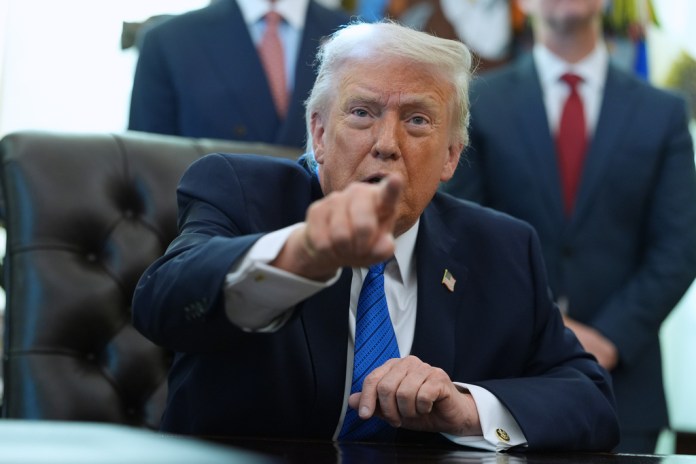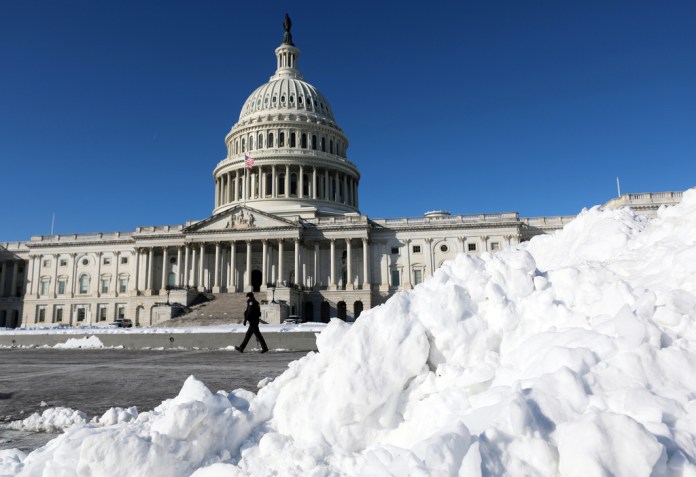Trump leaves for Asia amid tensions over shutdown, Russia, and Israel
President Donald Trump is set to embark on his first Asia trip during his second management, amid ongoing domestic adn international challenges. His itinerary includes attending the ASEAN leaders summit in Malaysia, trade talks in Japan with Prime Minister Sanae Takaichi, and bilateral meetings in South Korea and with Chinese president Xi Jinping, alongside participating in the Asia-Pacific Economic Cooperation (APEC) summit.
Key topics on the agenda include US-China trade relations,with Trump threatening increased tariffs on Chinese imports if no deal is reached by November 1. Discussions will also cover rare earth minerals, soybeans, nuclear arms control, and Taiwan. Trump plans to address China’s purchases of Russian oil following recent US sanctions on Russian energy firms amid the Russia-Ukraine conflict. Additionally, Trump aims to secure trade and investment agreements with Japan and South Korea to strengthen ties with US allies, particularly concerning economic dependencies on China.
At ASEAN, Trump intends to highlight his peace deal between Thailand and cambodia and discuss trade priorities including China’s overproduction issues, artificial intelligence, energy, and infrastructure investments. Experts note the strategic importance of Trump’s meeting with Xi in managing economic and political tensions, signaling efforts to prevent escalation despite broader US-China decoupling.
domestically, Trump faces a historic federal government shutdown now entering it’s third week, with federal employees missing paychecks. He has attributed the impasse to Democrats, delegating negotiation responsibilities to Senate and House Republican leaders. The shutdown presents additional challenges with upcoming health insurance enrollment and potential lapses in key entitlement programs. Simultaneously occurring, US foreign policy concerns continue, including ongoing sanctions on Russia and fragile peace dynamics in the Middle East involving Israel and Palestinian territories.
Trump to take off for Asia amid tensions flaring over shutdown, Russia, and Israel
President Donald Trump is embarking on his first trip to Asia during his second administration, facing headwinds on the home front and from abroad.
Trump departs on Friday for Malaysia and the Association of Southeast Asian Nations leaders summit before traveling to Japan on Monday for trade talks with new Japanese Prime Minister Sanae Takaichi to discuss outstanding issues with the U.S.-Japan deal, before crossing the Korea Strait on Wednesday bilateral meetings with South Korean President Lee Jae Myung and and Chinese President Xi Jinping, in addition to the Asia-Pacific Economic Cooperation summit.
Although Trump’s meeting with Xi and trade tops the trip’s agenda, the president will be simultaneously contending with the Russia–Ukraine war and the Middle East, not to mention a historically long federal government shutdown.
After announcing sanctions against two Russian crude oil companies this week following the postponement of another meeting with Russian President Vladimir Putin over Putin’s lack of commitment to peace, Trump told reporters he will raise China’s purchases of Russian oil with Xi when the two sit down in South Korea.
Aside from fentanyl production and trafficking, Trump will also raise trade between the United States and China after this week, threatening to increase tariffs on Chinese imports into the U.S. to 155% on Nov. 1 without a deal, despite the original deadline for an agreement being Nov. 10.
Trump, too, this week previewed specific trade topics such as soybeans amid China’s boycott of U.S. soybeans, rare earths, and other critical minerals before China’s Dec. 1 deadline for stricter export controls and nuclear arms control, telling the Washington Examiner this week that Taiwan will be on the agenda as well.
“We’re going to be talking about a lot of things,” he said. “I assume that’s going to be one of the things, but I’m not going to talk about that.”
For Council on Foreign Relations Southeast Asia and South Asia senior fellow Joshua Kurlantzick, “China holds a whip hand” over the U.S. regarding trade, particularly concerning rare earths.
“China’s economy has grown only modestly, but their exports and manufacturing are at the highest percentage of global manufacturing of any country since World War II,” Kurlantzick told the Washington Examiner. “They do need to convince their own people to spend money, that’s their huge economic problem, but were that to happen, the economy would be booming.”
Before the meeting, William Chou, deputy director of Hudson Institute’s Japan Chair, implored Trump to “not cede considerable long-term American interests in exchange for promises over soybean purchases or Chinese actions on fentanyl precursor export that Beijing can easily skirt — as it has done many times before.”
“It would be a success if Trump can hammer out investment agreements with Japan and South Korea to show that America’s closest allies are in close lockstep [amid] China’s use of rare earths and legacy semiconductors as weapons to promote further economic dependency,” Chou told the Washington Examiner.
To that end, Trump is poised to make progress with Japan on the parameters of its 550 billion investment fund, complemented by a critical minerals deal, and the terms of South Korea’s $350 billion counterpart.
Trade will also be at the center of APEC, considering the economic multilateral organization hopes to increase regional trade integration under this year’s theme of “Building a Sustainable Tomorrow,” which includes strengthening connectivity, fostering innovation, and sustaining inclusive growth and prosperity.
Trump will have a slightly different focus at ASEAN, with the president to underscore his peace deal between Thailand and Cambodia, as Burma continues to be in a civil war. That does not preclude a trade deal with Malaysia. The multilateral organization’s other priorities include China’s overproduction and transshipment of goods, artificial intelligence and datacenter development, and investments in energy and infrastructure.
Regardless of what unfolds, Atlantic Council Indo-Pacific Security Initiative nonresident senior fellow Josh Cartin contended it was important for the U.S. to convey it has the “most vibrant economy, deepest and most efficient capital markets, and innovative capacity,” and is “leveraging those assets” to “rebalance global trade and investment.”
Of the Xi meeting, Cartin, who worked for the National Security Council’s East Asia Directorate during Trump’s first administration, added: “The fact of the meeting happening, if it happens, is probably more important than whatever comes out of the meeting. It has symbolic importance, which I think will be welcomed by global markets and economic stakeholders all over the world, which basically is that, even though the United States and China are to different degrees and in different ways pursuing a kind of disentanglement of the economies, a meeting between the two leaders demonstrates an effort to manage escalation risk, manage potential downside risk.”
Meanwhile, at home, Trump is three weeks into the country’s longest government shutdown, as federal employees are set to miss their first complete paycheck on Friday.
When asked on Thursday whether he expects the government to be reopened by the time he returns next week from Asia, Trump criticized Democrats for not caring about people and for having “no leadership.”
“This is all the Democrats,” he told reporters in the State Dining Room. “They really should approve an extension, get the country back to work, get the people paid… There’s something wrong with them.”
Trump has delegated responsibility for negotiations with Democrats over the shutdown to Senate Majority Leader John Thune (R-SD) and House Speaker Mike Johnson (R-LA), who have repeated that they will not engage with Democrats over their demand for Obamacare healthcare insurance premium subsidies when the government is closed.
Senate Republicans need eight Democrats to at least support a continuing resolution, a legislative measure that would prolong current spending levels, but a previously passed resolution that would fund the government until Nov. 21 may now require a new iteration with a pushed back date, possibly until December 2026.
But before then, Nov. 1, days after he returns from Asia, will present a test for Republicans and Democrats when insured people will be advised of increased premiums when open enrollment for health insurance starts. At the same time, funding is anticipated to lapse for entitlement programs, including the Supplemental Nutrition Assistance Program, or SNAP.
SENATE CONFIRMATION-SCARRED TRUMP NOMINEES FIND OTHER HOMES IN THE ADMINISTRATION
Regarding foreign policy, although there is some overlap concerning China’s position with respect to Russia and Ukraine, Trump will be grappling while he is in Asia with his sanctions against Russian oil companies Rosneft and Lukoil as Europe introduces its 19th respective package, including a prohibition of Russian liquefied natural gas, and violence escalates between Russia and Ukraine.
Then, with the Middle East, Secretary of State Marco Rubio is scheduled to be in Israel amid concerns that Trump’s peace deal between Israel and Hamas will not hold after Israel’s parliament, the Knesset, preliminarily voted to annex the Palestinian territory of the West Bank this week.
" Conservative News Daily does not always share or support the views and opinions expressed here; they are just those of the writer."




